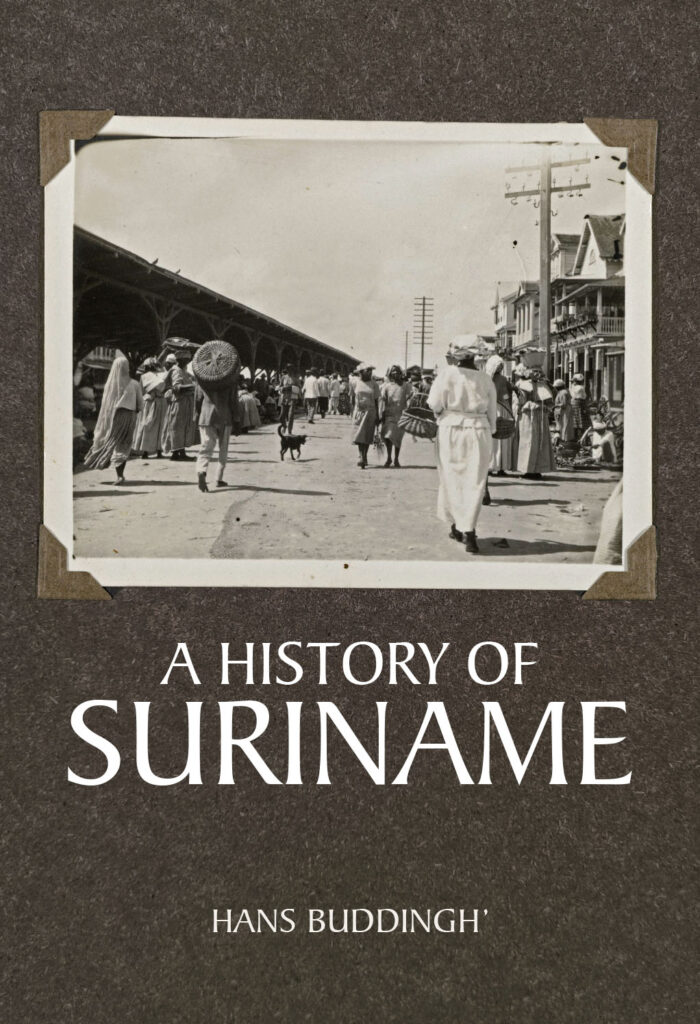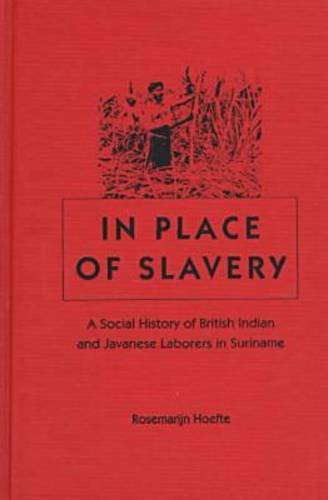Have you ever wondered about the literary scene in Suriname? Well, you’re in for a treat! Suriname may be a small country, but it has produced some exceptional novels and talented authors. In this article, we’ll delve into the world of Surinamese literature and explore some of the noteworthy novels and authors that have emerged from this South American nation. Whether you’re a bookworm or simply curious about different cultures, you’ll find plenty of fascinating insights here.
Surinamese literature is rich in diversity and tells stories that reflect the country’s history, culture, and identity. One prominent author you should definitely check out is Cynthia McLeod. Her historical novel, “The Cost of Sugar,” takes you back to the 18th century when Suriname was a Dutch colony built on the labor of enslaved Africans. McLeod’s vivid storytelling and captivating characters bring this dark period of Surinamese history to life, shedding light on the harsh realities of slavery. But that’s just one example! Suriname has so much more to offer in terms of literary treasures, and we’ll be exploring them further in this article. So, grab a cup of coffee, get cozy, and prepare to discover the fascinating world of Surinamese literature!

Introduction
Suriname, a small country in South America, may not be the first place that comes to mind when thinking about literature, but it has a rich literary tradition that is worth exploring. This article will delve into the literary background of Suriname, highlighting the colonial influence on Surinamese literature, as well as the emergence of Surinamese literature after independence. Moreover, it will focus on some of the most prominent Surinamese novelists, including Cynthia McLeod, Anton de Kom, Albert Helman, Clark Accord, and Astrid H. Roemer. Their lives, works, and contributions to Surinamese literature will be discussed, shedding light on the remarkable literary legacy of Suriname.
Literary Background of Suriname
Colonial Influence on Surinamese Literature
Suriname, a former Dutch colony, experienced centuries of colonial rule that greatly influenced its literature. During this period, European literary traditions were introduced to the local population, resulting in a blend of European and Surinamese storytelling techniques. The themes of colonization, slavery, and cultural hybridity are prevalent in Surinamese literature, reflecting the complex history of the country.
Emergence of Surinamese Literature after Independence
Suriname gained independence from the Netherlands in 1975, and this event marked a turning point in the country’s literary development. Surinamese writers now had the freedom to explore their unique cultural identities and share their stories with the world. The post-independence era saw an increase in the production of Surinamese novels, focusing on themes of colonialism, postcolonial identity, migration, and women’s experiences.

Prominent Surinamese Novelists
Cynthia McLeod
Cynthia McLeod is widely regarded as one of Suriname’s most prominent novelists. Born in 1936, McLeod’s works explore the history of Suriname, often centering around the experiences of women. Her novels provide a window into the lives of Surinamese women across different periods, shedding light on their struggles and triumphs.
Anton de Kom
Anton de Kom, born in 1898, is a literary icon in Suriname. He is best known for his book “Wij slaven van Suriname” (“We Slaves of Suriname”), published in 1934. This seminal work examines the history of slavery in Suriname and its lasting effects on the country’s society. De Kom’s powerful writing style and his importance in the fight against colonialism have solidified his place in Surinamese literature.
Albert Helman
Albert Helman, born in 1903, was a multifaceted writer who made significant contributions to Surinamese literature. His novels cover a range of themes, including colonialism, postcolonial identity, and the struggles of marginalized communities. Helman’s unique storytelling style combines elements of magical realism with historical events, creating thought-provoking narratives.
Clark Accord
Clark Accord, born in 1961, emerged as a notable Surinamese novelist in the late 20th century. His works often explore the lives of Surinamese immigrants in the Netherlands, highlighting the challenges they face while navigating their dual identities. Accord’s novels resonate with many readers, both in Suriname and across the diaspora, as they reflect the experiences of many Surinamese people living abroad.
Astrid H. Roemer
Astrid H. Roemer, born in 1947, is a highly acclaimed Surinamese novelist, poet, and playwright. Her works tackle a wide range of themes, including feminism, colonialism, and the search for cultural identity. Roemer’s captivating writing style has earned her numerous awards and recognition, solidifying her status as one of Suriname’s most influential writers.
Cynthia McLeod: Her Life and Works
Early Life and Education
Cynthia McLeod was born in Paramaribo, Suriname, in 1936. She grew up in a literary household, as her father was also a writer. McLeod’s passion for literature developed at an early age, and she went on to study Dutch language and literature at the University of Amsterdam.
Notable Novels by Cynthia McLeod
McLeod’s most famous novel, “Hoe duur was de suiker?” (“The Cost of Sugar”), explores the history of slavery in Suriname through the eyes of a plantation owner’s daughter and a slave. This gripping tale delves into the complexities of power, love, and morality during the darkest era of Suriname’s history.
Another notable work by McLeod is “Tweemaal Mariënburg” (“Twice Mariënburg”), which delves into the lives of Surinamese indentured laborers during the colonial period. This thought-provoking novel sheds light on the struggles faced by these individuals and the lasting impact of Dutch colonial rule.
Recognition and Awards
Cynthia McLeod’s contributions to Surinamese literature have not gone unnoticed. She has been honored with several awards, including the C. C. S. Crone Prize and the Dutch Literature Prize. Her novels have been translated into multiple languages, reaching a global audience and cementing her reputation as a literary force to be reckoned with.

Anton de Kom: A Literary Icon of Suriname
Biography of Anton de Kom
Anton de Kom was born in 1898 in the town of Paramaribo, Suriname. Born to a Surinamese mother and a father of African descent, his mixed heritage played a significant role in shaping his worldview. De Kom’s family faced racial discrimination, which fueled his passion for social justice and writing.
Seminal Works by Anton de Kom
Anton de Kom’s most well-known work is “Wij slaven van Suriname” (“We Slaves of Suriname”), published in 1934. This groundbreaking book offers a scathing critique of Dutch colonial rule and racism, shedding light on the harsh realities of slavery in Suriname. De Kom’s firsthand experiences as a member of the Afro-Surinamese community informed his powerful and thought-provoking narrative.
Legacy and Impact
Anton de Kom’s work continues to inspire and educate readers, both in Suriname and beyond. His courage in speaking out against injustice and his exploration of Surinamese history have left an indelible mark on Surinamese literature. De Kom’s legacy serves as a reminder of the power of literature in understanding and challenging oppressive systems.
Albert Helman: Contributions to Surinamese Literature
Life and Influences
Albert Helman, born as Lou Lichtveld in 1903 in Paramaribo, Suriname, was a prolific writer, musician, and politician. He grew up in a multicultural environment, which heavily influenced his writings. Helman’s diverse cultural background, consisting of both indigenous and European roots, shaped his perspectives on Surinamese society and its complex history.
Major Novels by Albert Helman
One of Albert Helman’s most notable works is “De stille plantage” (“The Silent Plantation”), published in 1931. This novel vividly portrays the cruelties of slavery in Suriname and delves into the psychological effects of oppression on both the enslaved and the slave owners. “De Stille Plantage” is considered a classic of Surinamese literature and continues to be studied and celebrated today.
Another significant work by Helman is “Zuid-Zuid-West” (“South-Southwest”), published in 1935. This autobiographical novel explores Helman’s experiences as a young man traveling through South America, allowing readers to gain a deeper understanding of his personal journey and the diverse cultures he encountered.
Significance in Surinamese Literature
Albert Helman’s contributions to Surinamese literature extend beyond his novels. He also played a crucial role in establishing literary and cultural institutions in Suriname. Helman’s dedication to preserving and promoting Surinamese culture has left a lasting impact on the literary community and serves as a source of inspiration for future generations of Surinamese writers.

Clark Accord: A Notable Surinamese Novelist
Biography and Background
Clark Accord was born in 1961 in Paramaribo, Suriname. At the age of 17, he moved to the Netherlands, where he encountered cultural challenges as he navigated his Surinamese roots and his new Dutch identity. These experiences would later shape his writing and become central themes in his novels.
Popular Novels by Clark Accord
Clark Accord’s novel “Bye Bye, Bully” gained significant acclaim and serves as a testament to his literary prowess. This book explores the lives of Surinamese immigrants in the Netherlands, highlighting their struggles with cultural integration, racism, and familial expectations. “Bye Bye, Bully” is celebrated for its realistic portrayal of Surinamese identity in a foreign land.
Another notable work by Accord is “Kwatta” (1996), which explores the intergenerational conflicts and challenges faced by Surinamese families in Suriname and the Netherlands. Through his engaging storytelling, Accord delves into themes of immigration, religion, and sexuality, providing a unique perspective on Surinamese culture.
Contribution to Surinamese Identity
Clark Accord’s novels have made a significant contribution to the formation of Surinamese identity, particularly for those living in the diaspora. By highlighting the struggles and nuances of the Surinamese immigrant experience, Accord’s works have resonated with many Surinamese people around the world, fostering a sense of cultural pride and understanding.
Astrid H. Roemer: Her Remarkable Literary Career
Brief Biography
Astrid H. Roemer was born in 1947 in Paramaribo, Suriname. She moved to the Netherlands in the 1960s, where she began her literary career. Roemer’s diverse cultural heritage, including Indigenous, African, and European influences, has greatly influenced her writing, enabling her to explore complex themes of colonialism, feminism, and cultural identity.
Noteworthy Novels by Astrid H. Roemer
One of Astrid H. Roemer’s most renowned works is “De wereld heeft gezicht verloren” (“The World Has Lost Its Face”), published in 1981. This novel delves into the collective trauma experienced by Surinamese people during the struggle for independence and reflects on the nation’s search for identity in the aftermath. Roemer’s lyrical prose and profound insights have earned her international acclaim.
Roemer’s novel “Over de gekte van een vrouw” (“About the Madness of a Woman”) is another notable work. This book explores the experiences of women from different generations and cultural backgrounds, shedding light on the challenges they face in a patriarchal society. Through her powerful narratives, Roemer challenges societal norms and advocates for gender equality.
Recognition and Controversies
Astrid H. Roemer’s literary achievements have not gone unnoticed. She has received numerous awards, including the prestigious P. C. Hooft Prize and the Ferdinand Bordewijk Prize. However, Roemer’s works have also faced controversies due to their frank exploration of subjects such as sexuality and colonialism, challenging societal norms and provoking critical discussions.

Themes in Surinamese Novels
Colonialism and Postcolonial Identity
Colonialism has left a lasting impact on Surinamese society and is a recurring theme in Surinamese literature. Many novels explore the complex relationships between colonizers and the colonized, raising questions about power dynamics, cultural assimilation, and postcolonial identity.
Slavery and Its Legacy
The history of slavery looms large in Surinamese literature. Novels often delve into the horrific conditions endured by enslaved people, exploring the psychological and emotional impacts on both the enslaved and their descendants. The legacy of slavery continues to shape Surinamese society and is a fundamental theme in understanding the country’s cultural identity.
Migration and Cultural Hybridity
Migration is another significant theme in Surinamese novels, reflecting the experiences of Surinamese people who have relocated both within the country and abroad. These novels explore the challenges faced by migrants as they navigate new cultural contexts, grapple with the loss of their homeland, and negotiate their identity as both Surinamese and members of their new communities.
Historical Context of Surinamese Novels
Colonial Period in Suriname
Suriname’s colonial history, particularly under Dutch rule, has greatly influenced the themes and narratives found in Surinamese novels. The brutal realities of slavery, the oppressive plantation system, and the cultural clashes between colonizers and the indigenous population have all left lasting impressions on the literary works of Suriname.
Struggle for Independence
Suriname’s fight for independence from the Netherlands in 1975 marked a turning point in the country’s history and literature. Many novels written in the aftermath of independence explore the complexities of nation-building and the challenges faced by Surinamese people as they grappled with their new identity and sought to redefine themselves as an independent nation.
Effects of Dutch Colonial Rule
Dutch colonial rule had a profound impact on Surinamese society, and this influence is reflected in Surinamese novels. The legacies of colonialism, including cultural assimilation, racial discrimination, and economic disparities, continue to shape the social fabric of Suriname. Novels examine these effects and provide a platform for understanding the complexities of Surinamese history and society.
Influence of Surinamese Culture on Novels
Surinamese Folklore and Mythology
Surinamese novels frequently draw upon the country’s rich folklore and mythology. The incorporation of traditional stories and beliefs adds depth and authenticity to the narratives, connecting readers to Surinamese cultural heritage. Surinamese folklore often serves as a metaphorical language, conveying deeper meanings and insights into the human condition.
Multiculturalism and Ethnic Diversity
Suriname is known for its ethnic and cultural diversity, and this multiculturalism is a central theme in Surinamese novels. Writers explore the dynamics between different ethnic groups, often focusing on the tensions and harmonies that arise from this diversity. Surinamese literature celebrates the country’s multicultural heritage, showcasing the contributions and experiences of various ethnic communities.
Language and Linguistic Influences
Surinamese literature reflects the linguistic diversity of the country. Dutch, Sranan Tongo (Surinamese Creole), and other languages spoken in Suriname find their way into the novels, adding to the authenticity and richness of the storytelling. The use of different languages and dialects captures the essence of Surinamese society, where multiple languages coexist and blend together.
Representation of Women in Surinamese Novels
Female Authors and Their Perspectives
Surinamese female authors have played a vital role in shaping the literary landscape of Suriname. Through their works, they provide unique and often marginalized perspectives, highlighting the experiences and voices of women in Surinamese society. Their narratives challenge gender roles and societal norms, offering a necessary critique of patriarchy and advocating for women’s empowerment.
Social Roles and Gender Dynamics
Surinamese novels explore the complex dynamics of gender roles within Surinamese society. These writings shed light on the struggles faced by women, examining societal expectations, gender discrimination, and the challenges of balancing tradition with personal aspirations. By addressing these issues, Surinamese literature prompts critical conversations about gender equality and social justice.
Feminist Themes and Narratives
Feminist themes and narratives are prevalent in Surinamese novels, as they tackle issues of gender inequality, sexism, and women’s empowerment. Surinamese female authors have been at the forefront of this movement, using their writing to dismantle patriarchal structures and advocate for gender equity. These novels challenge societal norms and inspire change, emboldening readers to rethink and reshape gender dynamics.
Reception of Surinamese Novels
Critical Acclaim and International Recognition
Surinamese novels, though often overlooked on the global literary stage, have received critical acclaim and international recognition. The powerful storytelling, rich cultural contexts, and thought-provoking themes explored in Surinamese literature have garnered enthusiastic responses from readers and critics worldwide. In recent years, efforts to translate and disseminate Surinamese novels have further increased their visibility and prestige.
Challenges and Controversies
Surinamese novels have occasionally faced challenges and controversies due to their exploration of delicate themes, including colonialism, racism, and gender. These novels have sparked critical discussions and debates, with some readers and scholars questioning the historical accuracy and cultural portrayals in certain works. Despite these challenges, Surinamese literature continues to push boundaries and invite dialogue.
Impact on Surinamese Society
Surinamese novels have had a profound impact on the country’s society, serving as a catalyst for conversations about cultural identity, social justice, and historical memory. These novels encourage readers to confront the painful aspects of Surinamese history, fostering a sense of collective healing and societal transformation. Surinamese literature continues to play a vital role in shaping the national narrative and preserving the country’s cultural heritage.
Conclusion
The novels and authors of Suriname have left an indelible mark on the country’s literary landscape. Through their powerful narratives, these writers have explored themes of colonialism, slavery, migration, and women’s experiences, resonating with readers both within Suriname and beyond. Surinamese literature has sparked critical dialogue, challenged societal norms, and contributed to the nation’s cultural identity. As Suriname continues to evolve, its literature will undoubtedly play a vital role in expressing and understanding the complexities of the country’s past, present, and future.